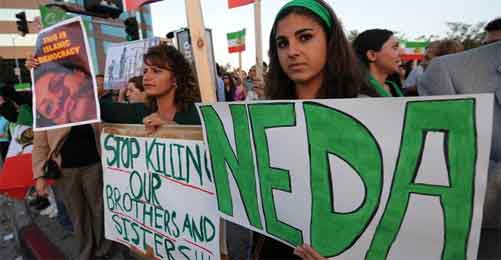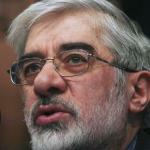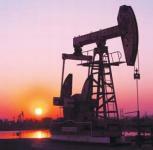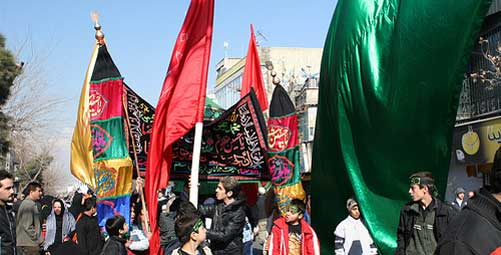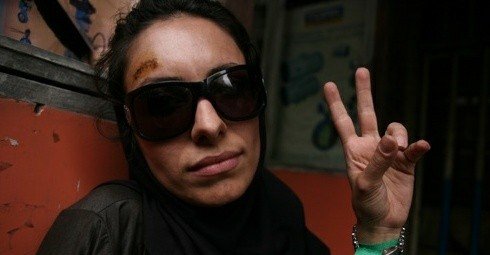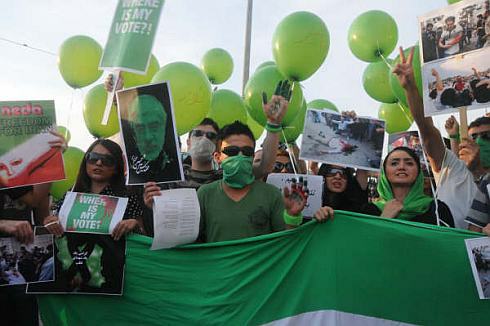
"...you should travel a millennium to reach Islam.
... then a second millennium to reach the frontiers of humanity."
(Rumi, 13th century Anatolian poet)
Common human evolution and Barack Hussein Obama's New World Order (NWO)
The humanity has now passed the second millennium and has not yet reached what Rumi's promised humanity. Yet, during its history, mankind has experienced several emancipation efforts: the French Revolution, the Paris Commune, the colonial crusade on America, Africa and Asia, the Soviet experience, the racial project of the Nazi Germany, and the neo-liberal greediness of the post World-War II economy. Nonetheless we are witnessing poverty, social injustice, and war all over the world. Mankind is way behind the time-schedule of prophets and philosophers' promised paradise and welfare.
Although different in their objectives and methods, these social-engineering projects had one thing in common; their primitive, sectarian, tribal, or patriotic nature, trying to subjugate the ones behind their tribal borders. Today the spectrum of a new massive change is hunting the world. The spectrum of globalization; the project of de-nationalization of international politics and political economy; a process which has gained a huge momentum after the fall of the Soviet empire. It is only against this background that we can understand the election, by a predominantly white Anglo-Saxon protestant America, of Barack Hussein Obama, as well as his speeches:
"Partnership and cooperation among nations is not a choice, it is the only way, the one way, to protect our common security and advance our common humanity... That is why the greatest danger of all is to allow new walls to divide us from one another...The walls between the countries with the most and those with the least can not stand...The walls between races and tribes, natives and immigrants, Christians and Muslims and Jews can not stand. These are the walls we must tear down." (from Obama's New World Order speech in Berlin, July 24th 2008)
"Technology has changed the way we live, and the way the world does business. The collapse of the Soviet Union, the advance of capitalism have vanquished all challenges to America's global leadership. But new challenges have emerged...the challenge of competing with the world... " (from Obama's speech on Globalization in Michigan, July 28th 2008)
No previous American president has ever been able to understand his mission so clearly! And no one has formulated this mission so precisely as Obama has managed to do. But let us try to understand the meaning of this mission for the mankind. Let us try to put together and reformulate these two statements:
"The advance of our common humanity ( tearing down the walls between nations and isolated economic marketsI.e capitalism as expressed in July 24th speech), requires that we create global security by and for those with the most and those with the least." In other words, Globalization, as the project formulated and repeatedly spoken of by world political leaders, is in fact a political project rather than an economical one. It is a project of safeguarding the communicating economic vessels.
In a sense, the globalization of Capitalism has been in process ever since the establishment of the Dutch East Indian Company in 1602! Yet, due to the lack of political counter weights in the colonized countries the new world markets were soon monopolized by global companies with too limited liquidities to be invested back in these colonies. Thus, the communication between the colonial and the colonized vessels was strangled in favor of the colonial countries preventing them from getting slough off their national skin and create a modern global financial system capable of meeting the needs of freely communicating global capitalist vessels.
Colonial globalization of economy was mainly the globalization of two aspects of capitalist production; extraction of raw materials and enslavement of the human labor power of the colonized societies. Whereas what we see today is a total globalization that has gained a huge momentum and its direct consequences in peoples' daily lives all over the world on the one hand, and the political need of a global security for this global economic system on the other.
Although phrased as words of the Holly Koran, Barack Obama put together the two main components of the new American strategy for global partnership and global security in his "New Beginning" speech (The Middle East speech) in Cairo, June 4th 2009:
" Of course recognizing our common humanity is only the beginning of our task. We have learned from recent experiences is that when a financial system weakens in one country, prosperity is hurt everywhere...When one nation pursues a nuclear weapon, the risk of nuclear attack rises for all nations. When violent extremists operate in on stretch of mountains people are endangered across an ocean... That is what it means to share this world in the twenty first century... we will help Iraq train its security forces and develop its economy. But we will support a secure and united Iraq as a partner and never as a patron."
During this speech Obama declared Americas "Marshal Plan" for a global partnership with the Muslim world by presenting a lengthy list of on-going or planned partnership-projects in the fields of education, research, innovation, health, energy, industry etc. The US engagement in enormous economic and financial partnership with the Muslim world in financial and energy-consumer-commodity "buy-back" fields was, of course, too obvious to be mentioned and too difficult to be explained by the president of a country whose credit economical enlargement (rather than real economical advancement nearly caused a global bankruptcy!
The missing links of the global evolution of the Middle Eastern economies are thus the countries and societies that by some mysterious reasons do not wish to contribute to the "common security" of a global economy and become US/EU partners. The addressed are obviously Iran, Hamas, and the Taliban-Al Qaida coalition.
Whereas Hamas, Al Qaida and the Talibans use terror to seize the political power, the motives of the Iranian government in resisting the globalization temptations is more difficult to explain. To understand Iran's reluctance one should look into the nature and structure of power in Iran.
Iranian society, the Shiite clergy and the Islamic revolution
Apart from the family, the most significant and powerful social institution in the Iranian society is composed of some 70 separate and totally independent hierarchical institutions each with its own religious leader called the "Oracles of Belief" ("Maraje Taghlid" or Ayatollah). Every Ayatollah has his own followers who practice Islam after his specific instructions covering all aspects of the followers professional, domestic, and social life as well as personal hygiene and religious duties such as pilgrimage to Mecca etc. The Shiite religious clergy is specific to the Farsi and Azeri-speaking provinces of Iran, neighboring regions of Iraq, Afghanistan and Pakistan and southern Lebanon.
The archetype of these Maraje is to be found in the pre-Islamic Iran where similar Zoroastrian Mobeds served as religious "Oracles". Together with the the Achaemenid aristocracts, who were earlier defeated by the rival Sassanids dynasty, these Mobeds were among the first Iranians to become Muslims following the defeat of Sassanids by the Muslim army in the seventh century A.C. Ever since then they have built up a religious cast which is not to be found in any Sunnite Muslim society. This new branch of Islam calls itself the Shiites of Ali, thus defying the legitimacy of the other three caliphs after the death of prophet Muhammad. The Shiite organization means "party" in Arabic and is influenced by he Vatican and the Byzantine orthodox church. It is totally independent from the government and has struggled to seize the political power at various periods of the post-Islamic history of Iran.
After the 1978 Islamic revolution in Iran the Shiite clergy, then numbering more than 70.000 priests, was divides into a passive spiritual-orientated minority and a militant political-orientated majority under the leadership of Ayatollah Khomeini. He managed to gather together the educated middle class, government employees, intellectuals, nationalist groups, "feudal communists", and the "small-and-poor" of the Bazaars against the monarchy of Mohammad-Reza Pahlavi. A true masterpiece of political organization, ideological agitation and power takeover!
Suffering from the paranoiac phobia of a Soviet coup d'etat, the monarchy (and its Western allies) overestimated the threat from small guerrilla groups and intellectual organizations of the 70's, thus neglecting the power of religious opposition which elaborately gained international support from the anti-communist West as well as from the Soviet Union. The Soviets, naturally, preferred a neighbor with a "non-capitalist mode of development" ideology to a neighbor allied militarily and economically with the US as Iran was prior to the 1979 revolution. With the US out of Iran , the Kremlin must have had sweet dreams of reaching the warm shores of the Persian Gulf one way or another, while the Americans must have had nightmares about another pro-Soviet government like those pupping up in the 60's and 70's in Syria, Iraq, Libya, Egypt, Yemen, Somalia, Ethiopia, Angola, Afghanistan etc.
These are the main two reasons why the Islamic Republic of Iran was tolerated by both West and East. The only task for the new government was now to consolidate its political power. Using countries growing oil-based revenues this task was not too difficult for the new regime. The 444-days long crisis of American hostages and the war with Saddam's Sunnite Iraq made this task much easier for the Ayatollah who by now was recognized by the Soviet Union and local "feudal communists" as the "anti-imperialist leader" of the country.
The Islamic Republic
This short-cut policy of paying petroleum-dividends in form of subsidies and cash salaries has been the Iranian government's economic strategy, tactic and method at the same time. Today 30 years after the Islamic revolution in Iran, the payroll of the regime is so lengthy that the government is unable to carry out long-term infrastructural investments necessary to create future job opportunities for the rapidly growing young generation. At the same time the country has been forced to accept a de facto buy-back trade with the outside world which is mainly of benefit for a small section of the market, namely brokers and merchants, a small group with strong bonds to, favored by and totally obedient to the political administration. Whereas in free-market democracies of West the economical power and the market dictates its will upon politicians, in Iran it is the political elite which controls nations wealth and donates it to its followers to keep that power! Naturally any improvement in this upside-down economical system requires a parallel change in the whole political and economical management system of the country. A process which in turn requires subordination of the religious political management system to contemporary economical expectations and needs of a growing young, educated urban population.
This is the point where the requirements of the young Iranian demonstrators and their dreams for a better world meets the urgent and strenuous pressure from a globalized international community on Iran to open up its "political fist" and close down its "nuclear pursues" as expressed by barack Obama. The Iranian political system has the choice to do so. Iraq and Afghanistan did not but were ultimately forced to do so. The simple question is: What's in it for the Iranian political elite? The answer is of course not so convincing: The young generations increasing demand for having a job, a home, being able to supporting one's family, having equal opportunities and right as the opposite sex, human rights and freedoms, being able to participate in efforts of shaping a better future and reaching the frontiers of humanity. These are the minimum demands of the Iranians and are feasible only in a global coexistence with the world outside.
The globalization of the Middle East has taken different shapes in different countries. Whereas Turkey, for example, is trying to adjust itself to the requirements of the European Union, Oil-producing Emirates of the Gulf region feel no need to change anything at all. For these countries globalization is limited to he exchange of oil for consumption commodities (a new form of colonization except for the fact that raw materials are paid at the market price). Whereas the the nuclear Israel's occupation of Palestinian areas is overlooked by the global community, Iran's amateur experience with nuclear energy is world's most urgent security issue.
Iran's adjustment to the outside world will not necessarily be a difficult, but a multi-dimensional effort in which global community, too, has to adjust itself to the Iranian demands. Or rather to the demands of the Iranians. These demands are clearly expressed in the recent self-steamed popular uprising of June 2009 with free elections as the main slogan. Without a freely elected administration in Iran the globalization is doomed to fail, not only in Iran, but in the whole Middle East.
Unlike the societies of Gulf Emirates, China and other countries for whom the globalization has merely meant deepened international division of labor without real social achievements, Iranians can benefit from the democratic opportunities in a global process, provided that their cries are heard and their opinion respected by the European Union and the United States in the way it was heard and responded by international labor unions and human-right organizations. Horse trading with the Iranian at the cost of young Iranians future dreams will not work in th long term. (BD/EK)




